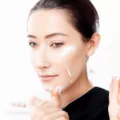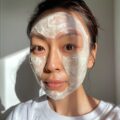When it comes to anti-aging treatments, Botox is a household name that often comes up in conversations about cosmetic procedures. But beyond its ability to reduce the appearance of fine lines and wrinkles, some claim it can also improve the overall quality of your skin. In this article, we delve into what experts have to say about Botox and its effects on skin health.
Understanding Botox and Its Uses
Botox, or Botulinum toxin, is a neurotoxin that temporarily paralyzes muscles, which can prevent and reduce the appearance of wrinkles caused by facial expressions. While it’s primarily known for its cosmetic uses, Botox is also approved for medical conditions such as chronic migraine, excessive sweating, and muscle disorders.
The Cosmetic Benefits of Botox
Experts agree that Botox can effectively smooth out expression lines, such as crow’s feet and frown lines, making the skin appear more youthful. The procedure is minimally invasive and can be done in a short office visit, with results typically lasting 3 to 6 months.
Can Botox Improve Skin Quality?
Recent studies suggest that Botox may do more than just relax wrinkles. Some dermatologists have observed improvements in skin texture and elasticity. This is thought to be due to Botox’s ability to relax the muscles, allowing the skin to recover from the constant motion that can contribute to wrinkling.
Potential Side Effects and Considerations
As with any cosmetic treatment, Botox comes with potential side effects. These can include bruising, swelling, and occasionally, drooping of the eyelid or asymmetry. It’s crucial to choose an experienced provider and discuss any concerns before the procedure.
FAQ About Botox and Skin Health
Can Botox prevent future wrinkles?
Yes, by minimizing muscle movement, Botox can prevent the formation of new wrinkles in the treated areas.
Is Botox safe for all skin types?
Generally, Botox is considered safe for most skin types. However, individuals with certain neurological diseases or skin conditions should consult with a medical professional first.
How often should you get Botox injections?
Most people get Botox injections every 3 to 6 months. However, the frequency can vary based on individual factors and desired results.
Does Botox help with acne?
There is some evidence that Botox may reduce the appearance of acne by decreasing oil production, but more research is needed in this area.
Can Botox replace a skincare routine?
No, Botox is not a substitute for a good skincare routine. It should be used in conjunction with other skin care practices for best results.
In conclusion, while Botox is renowned for its wrinkle-reducing abilities, emerging evidence suggests it may also contribute to improved skin quality. However, it’s not a cure-all for every skin issue, and should ideally be part of a broader approach to skin health that includes regular skincare and sun protection.









